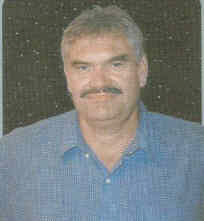
Albert Abraham
BDW: When did you first become interested in the concept of time travel? Who inspired you?
Albert:
From back in my junior
and high school days, I’ve always seemed to have an unusual
understanding for the concept of time and for the origin of the
universe. I also watched every episode of Dr. Who and formulated my own
ideas about time travel. After my discovery back in early 2000, that is
when my understanding about time formulation, gravity, and light,
seemed to have ratcheted into high gear. I guess you could
say that I inspired myself, due to my job causing over 100 percent
overtime the first three months of 2000. When the aircraft
was finally delivered, my overtime went to zero and I decided to write
a science-
BDW: What were your favorite science fiction books and authors?
Albert: Jules Verne’s “20,000 Leagues Under the Sea,” and Stranger in a Strange Land by Robert Heinlein.
BDW: Why did you decide on
the self-
Albert: There is a
very long story behind this full answer, so I’ll be brief as
possible. I will say one thing that drove me into the self-
In the year 2002, I wrote the Jack Jacobs story. Rutledge Books in Danbury Connecticut accepted my manuscript and I paid a good sum of money for a dust jacket and to get it into book form with an initial run of 1000 books. Unfortunately, Rutledge went out of business in February of 2003.
The Rutledge Books president sent me to a book publishing/printing company in New York. I had them print 1000 copies and it was released in April of 2003. Unfortunately, later in the same year, I found them to be dishonest, and severed my distribution agreement with them. So in early 2004, I was again without a publisher.
Soon after
Rutledge went
out of business, I started writing another story about a 10 year old
boy, a story that had nothing to do with time travel. I
finished that story about six months later. Later in 2003, I
went under contract with a literary agency for the Jack Jacobs story,
and the 2003 time-
In March 2004
the literary agency finished their line-
I went to an attorney in May 2005 after already knowing a name of a book company, filed incorporation papers, trademarks and my new book company was born. Now I’m the president, secretary, and treasurer, and also as the author, in complete control of my future stories and their destinies—to publish them myself, send them to a small publisher or to a literary agency and try a large publisher again.
BDW: Do you feel science fiction, in many cases, becomes the science fact of the future?
Albert: In most cases science-
BDW: What wisdom do you hope to impart to readers of "Jack Jacobs and the Doomsday Time Machine?
Albert: That hopefully the story will spark the imagination of those who read it, so that they will understand there is much more out there in the universe to be understood than ever thought possible. The story was also written to help everyone understand that Albert Einstein was correct in his statement, “God doesn’t roll dice”, and that everything has an order. The key is coming to understand it.
Send $22.99 for
a sample
copy of “Jake Jacobs and the Doomsday Time
Machine” to Blue Comet Books,
P.O. Box 17224, Wichita, KS 67217, or phone 1-

